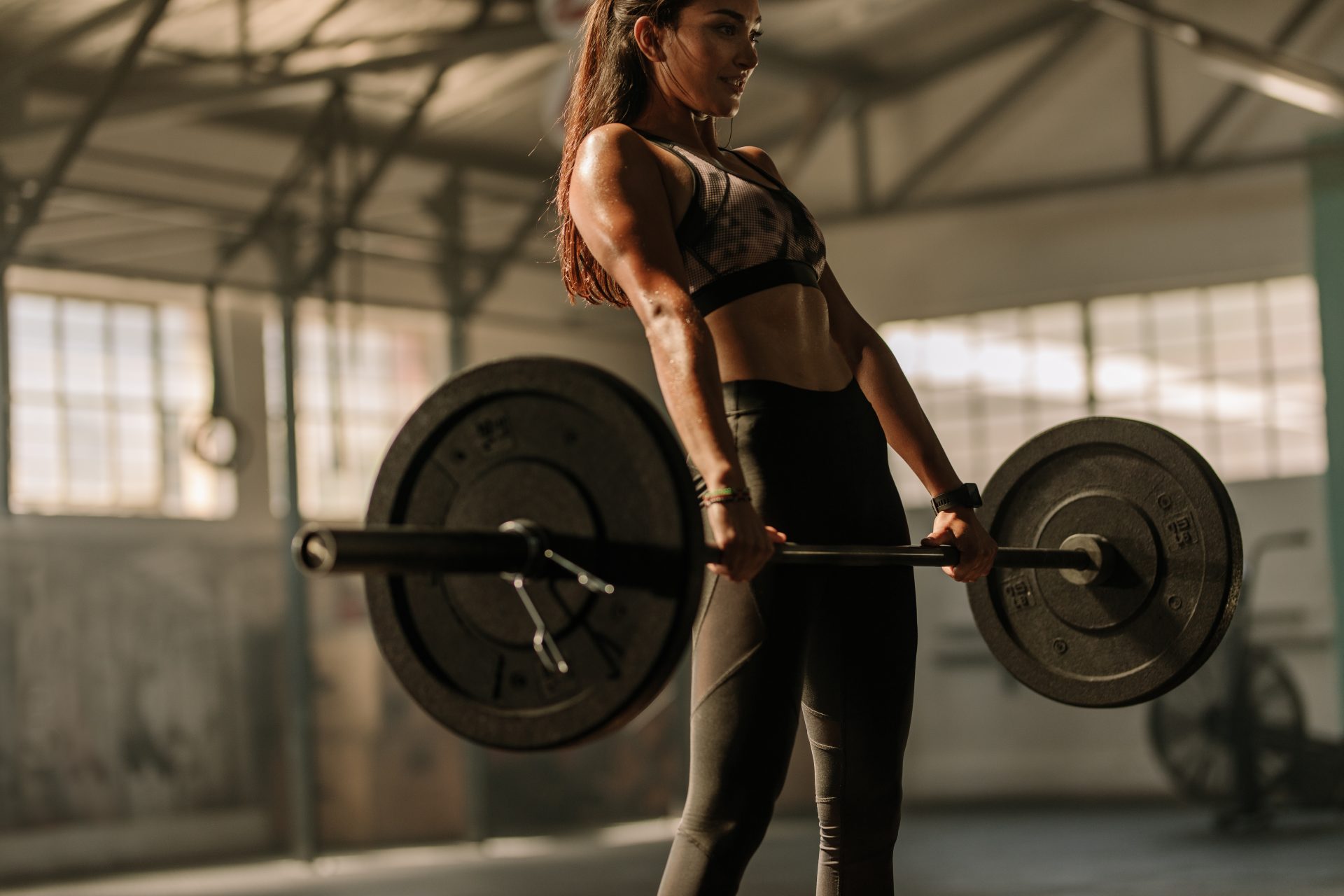
How we deal with period pain is just as unique as the cycles that led us there. Some people ease it with gentle walks and yoga, while others find it only gets better with rest and a hot water bottle. But there are those who prefer to take a more intense approach, using exercise as a way to get things moving and reduce pain.
The science does suggest that we actually have more energy and strength when we are menstruating due to a change in hormones. But that doesn’t take into account the pain that comes with a period, most commonly in our stomachs and backs – two very important areas when it comes to strength training, as we should engage the abdominals and keep our backs nice and flat in pretty much every exercise.
You may also like
Exercise and your period: how to maximise your workout according to your hormones
The evidence on periods and exercise is lacking, but “there’s no scientific proven reason that you shouldn’t work out if you have pain, and there’s probably more evidence to show that it can be helpful rather than unhelpful,” explains Dr Folusha Oluwajana, GP and expert in sport and exercise medicine.
A recent paper on this by St Mary’s University analysed results from 14,000 women on Strava to find that training did improve symptoms for 78% of women. While they didn’t offer any specific reason as to why this was, Dr Oluwajana suggests the fact that “endorphins have some analgesic effects so might alter your perception of pain” as just one reason.
While the study did find that moderate-intensity exercise (categorised as ‘hard breathing but able to hold a conversation’) is most effective at easing cramps, the study didn’t look at the type of exercise that respondents were doing. While running or walking on your period is one thing, how does weight lifting, and contracting the muscles that are already sore, factor in?

Let’s start with why they might be sore in the first place: inflammatory substances called prostaglandins, released when the uterus contracts to shed its lining and bring on a period, can also have a knock-on effect on the surrounding muscles, such as the stomach and back.
“Some people might feel the lower abdomen and back is more sensitive when they have their period, so I’d say activities like heavy lifting or intense running which puts pressure in that area could be difficult,” says Dr Oluwajana. In the same way that you might want to avoid training a muscle that is inflamed from delayed onset muscle soreness, you may want to skip anything that engages the stomach and back during your period too.
“It depends on the individual, similar to other forms of pain, like a headache. Some people can continue their activities, like exercise or work, with a headache, but for other people it’s more severe and it’s going to suddenly change what they’re able to do,” adds Dr Oluwajana.
Ultimately, we do need to choose what works for us, agrees personal trainer and member of the Strong Women Collective Emma Obayuvana: “Some exercises, like hip hinging movements including deadlifts and hip thrusts, do put pressure through the back and can be uncomfortable if those areas are already sore. If you are finding that you get back pain and it’s not as a result of your form, just avoid those exercises until your period pain settles. Sometimes it’s worth just saying ‘sod it’. We don’t always have to push our bodies hard.”
You may also like
How to strength train and avoid injury
The most important thing is the movement that we do over time, not just on the few days that we have stiff or sore muscles. In fact, a 2013 study published in the Journal of Chiropractic Medicine found that strengthening your core can improve low back pain and disability during periods, and wider studies have found that general movement can improve pain severity and physical function for those with chronic pain.
So, give yourself a break if you feel a bit out of whack when lifting during your period, and opt for something more low-key instead. Alternatively, fly through those deadlifts if it makes you feel better.
“And if you are having severe period pain that’s affecting your daily routine every month, you should speak to your doctor,” reminds Dr Oluwajana. “Most pain doesn’t have an underlying cause, but it could be a symptom of fibroids or endometriosis.”
Follow @StrongWomenUK on Instagram for the latest workouts, delicious recipes and motivation from your favourite fitness experts.
Images: Getty
Source: Read Full Article